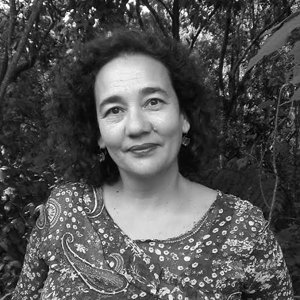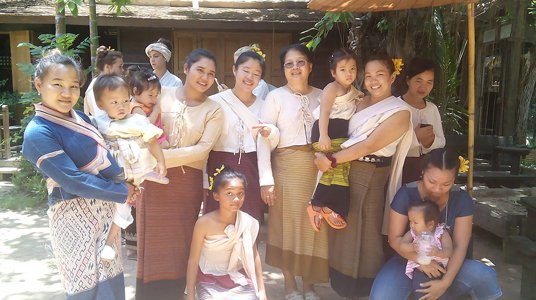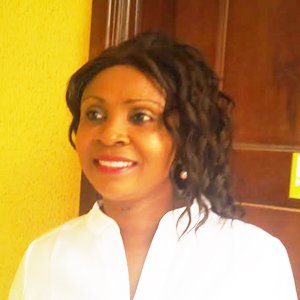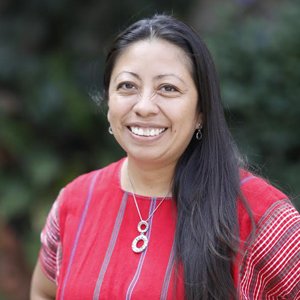2018
THE WOMEN HAVE WINGS AWARDS
Urmila Chanam
India
Urmila Chanam is a courageous and visionary health and human rights advocate from India who is implementing a comprehensive effort to change societal norms and to provide factual information around menstruation in order to build a society that makes menstrual hygiene a possibility for millions of women and girls. The challenge before her is immense and pervasive as she is working within deeply ingrained cultural norms and beliefs that menstruating women are untouchable. Statistics show that 70% of mothers in India believe menstruation is impure and only 48% of girls report awareness of menstruation prior to menarche. Building on her personal experience with stereotypes and her society’s gender norms, she set out to create a world where women and girls never have to feel afraid of their bodies, biology, identity, or aspirations.
In 2014, Urmila founded Breaking the Silence, an organization aimed at “banishing myths and taboos around menstruation that act as barriers to good health practices in India through dissemination of accurate information on menstruation and its hygienic management.“ By focusing on scientific facts and using a multifaceted approach, Urmila aims to bridge the cultural divide.
Through direct training, training of trainers, and online outreach, Urmila has shared her menstrual hygiene material with at least 9,000 women and girls in India and has reached thousands more who follow her on social media. She has been working to shift the paradigm for a variety of stakeholders with an objective to create a supportive environment for women and girls in every space in society. This has included engagement with a range of individuals and organizations including women’s groups, NGOs, civil society, government agencies, and schools and colleges. Her unique approach reaches beyond an exclusive focus on women, as she has also engaged army and police personnel, village authorities, and other male-dominated segments of society.
In addition to working amidst significant cultural barriers, Urmila has managed incredible success despite physical challenges. India is a vast and diverse country with many remote and underdeveloped areas where access is difficult, conditions dire, and safety for a female activist precarious. She has risked her health and safety to empower women through monumental cultural shifts in India and beyond.
Martha Ilano
Columbia
Twenty seven years ago, Martha Ilano recognized that trees serve as our life force by keeping our air clean and creating a habitable place for all species. This moment inspired her and evolved into her life’s work. Today, she is dedicated to preserving the forests in Colombia and beyond.
Through an innovative approach, often working against the backdrop of a country plagued with conflict, Martha has launched an environmental movement led by women. Her work aims to create a global network of women conservation activists who will join together to proactively preserve our shared natural environment. She trains activists to educate and mobilize their communities for environmental preservation and sustainability. This expanded network focuses on working to preserve and increase protected areas for future generations. This year alone, Martha has managed to reach 500 women with conservation education. In Martha’s words, “I hope to reveal to women all over the world our strong connection to nature and how we can become its protectors.”
The journey has been challenging as Martha battles critical issues such as overpopulation and the deforestation proposed for continued construction. In the face of such obstacles, she has risen as a vocal environmental advocate in Columbia and has shared her vision and story internationally. Despite the physical and spiritual challenges, Martha’s resolve has remained steadfast as she continues to dedicate body and soul to the health and preservation of our planet.
Salama Sacerdoce Jocelyne
DRC
Nowhere is more dangerous for women than the Democratic Republic of the Congo, where women and girls suffer excessively from high rates of violence and extreme poverty during times of conflict since 1996. Even though peace has been established in most regions of the country, but the eastern provinces, still suffer from gender-based violence.The Democratic Republic of the Congo, in particular the east of the country, has a long history of rape and violence, it was named the “Rape Capital of the World”. Although sexual violence has always occurred in the country, but the region has faced increased rates of sexual violence at the time of the armed conflicts.
Once a survivor of rape, Joycelyn Salama now fights for girls in Kivu. Jocelyne has over five years of experiences in various fields in the community-development sector, and human rights in particular. She’s the founder and president of the network of girl’s activist named Club des Défenseurs des Droits de la Fille. The most important part of her work is when she shares her story and her experience, which gives hope and brings smiles to those who have lived in the same situation as she did. Her mission is to end rape by involving other survivors because they are the ones who know its pain. Joycelyn obtained her university degree in Computer Science. Upon competition of the Mandela Washington Fellowship, she plans to continue her work in gender equality with a focus on advocacy for girls’ rights and equal opportunities.
Resa Boenard
Indonesia
Bantar Gebang landfill in Bekasi is not only a home for Jakarta’s tonnes of waste, but is also a home for thousands of young children whose families make their livings picking through the waste hills. Most children end up being scavengers when they grow up and getting married at a very young age. Resa Boenard and her family moved from Padang in West Sumatera when she was eight to Bantar Gebang. At that time, Bantar Gebang was green with rice fields. Seeing these fields slowly turn into mountains of garbage motivated Resa to become the environmental activist that she is today. From a young girl teased at school for smelling like the landfill to the strong activist she is today, Resa is an inspiration to all of the youth living in Bantar Gabag.
The Kingdom of BGBJ works with the women and children of Bantar Gebang on resource management and life skills. With the help of the community, Resa started an apothecary business to support the day-to-day running of the NGO. Currently Resa is a well-known speaker and mentor to other environmentalists working to reduce waste, advocate for the environment and starting a business in waste management.
Khun Nom
Thailand
Khun Nom grew up in a tribal village in rural Thailand. These villages have their own rules and norms, separate from those of the nation. She studied sewing and started her own small business. Her husband was kind to her in the beginning, a common theme for abused women, and they had four children together. Then her husband started drinking, and he no longer allowed her to pursue her sewing business. He was aggressively protective and demanded that she be by his side at all times. He started beating her, and although she ran away three times, she was convinced to return by his excessive apologies and promises to change. Each time was the same, though. Now “Khun Nom” lives at the Wildflower Home with her children, refusing to return to her husband no matter what he says or promises. She usually works in the garden with the other mothers in the morning, and tends to the mushrooms in the afternoon. The Mushroom House is the first push towards economic development at the Wildflower Home, and “Khun Nom” stands at the forefront of the project. She is making a steady income for the Wildflower Home, and gets a small cut of the money to support her own family.
Emem Okon
Nigeria
Emem Okon is a community organizer/mobilizer and women’s rights activist from the Niger Delta, a hot spot in Nigeria. She has a passion for mobilizing women for action, for peace, and for their rights. She works in oil-impacted towns and villages, i.e. areas where oil companies are drilling in the Niger Delta. Two problems she and others are addressing are neglect of the region in terms of development and also the degradation of the environment by the oil companies. There are serious cases of oil spills and gas flaring — horribly toxic for the environment and the people.
Okon is leading a thriving Nigerian ecofeminist movement. She is the founder and Executive Director of Kebetkache Women Development & Resource Centre whose mission is to promote the rights of women and develop their leadership potentials, and to mobilize for the promotion of social justice. In an interview Emem granted a news media in California she did not mince words in telling Chevron the truth as it is: “Chevron’s operations in the Niger Delta have economically marginalized local villagers while giving them virtually no control over their own livelihood, land or resources. The people and communities living nearest to the oil have become poorer and more dispirited, and are living shorter lives. I came to California to tell Chevron that it must listen to the women of the Niger Delta and change its operations”.
With voices such as Emem’s it is hoped that the exploitation of the Niger Delta will become a thing of the past soon.
Mary Akrami
Afghanistan
Mary Akrami is a vocal advocate for women’s rights in Afghanistan, Executive Director of Afghan Women Skills Development Center (AWSDC) and the Chair of the Board for the Afghan Women’s Network (AWN). In 2003, Mary opened the first Afghan shelter for survivors of violence against women in her country. Since then, she has worked with police forces and the Ministry of Women’s Affairs to ensure the governments’ recognition of safe houses, and to ensure strong referral systems for women survivors of domestic and sexual violence. In 2008, Mary was arrested because of their vocal leadership around shelters and safe houses. She’s also received numerous death threats throughout the years, and works under the threat of attacks and retaliation on a daily basis.
In 2016, Mary brought together hundreds of religious and civil society leaders from all over Afghanistan together to discuss violence against women, and came up with a plan to tackle it across the country. After two days of lively discussions, they reached an agreement and shared eight recommendations to the government. The President himself took action with the recommendations and vowed to work with civil society to implement them. Mary also opened a restaurant in which survivors of domestic violence and women living in shelters can earn a livelihood. She believes in giving women chances to rebuild their lives, and she has given hers to ensure such possibilities to others.
Mariama Sonko
Senegal
Mariama Sonko has been a movement leader since 1990, advocating tirelessly for agricultural and land ownership rights to empower local women and reclaim agricultural autonomy in West Africa. She has built a movement founded on organizing grassroots women building solutions to many challenges they face, integrating women’s leadership and participation in democracy, sexual and reproductive rights and ending female genital mutilation. She told me how she organized women in different groups, as they were more comfortable to speak among themselves, without men present, and in their similar age groups (younger women together and older women together) so she would first speak with each age group/gender about native seeds and traditional farming practices and farming sustainably to feed their families more efficiently, then when trust was built would begin to organize, to talk about FGM, even to her own mother who was a cutter, saying “Mama I know you would not want to harm these girls by spreading disease through a dirty knife.”
Following the destruction caused by decades of war in her home of Casamance, and after losing her husband to state violence, Mariama was catalyzed, and set about organizing in her community. Throughout years of conflict, large multinational corporations sought to profit from West African lands. Women, the traditional workers of the land, no longer held land to their name, and indigenous farming was overhauled by invasive practices. Mariama led her community in contesting chemicals, pesticides, and GMOs, introduced by foreign interests, in favour of preserving the land and culture for future generations. She began organizing rural women, using workshops, forums and radio to teach traditional ways of farming, protecting native seeds from corporate claims to genetic property, resisting pesticides sold by multinationals, and increasing commitments to agroecological peasant farming for food sovereignty. “They take our seeds and sell them back to us as ‘intellectual property’,” she told OpenDemocracy. “We try to tell them you didn’t create that, that it is inherited, it belongs to us, in the plural. For us seeds don’t belong to anyone. They’re common property.”**
Once organized, the women began fighting for the right of women to own land. Frustrated by the degradation of the land through the practices of multinational agribusinesses. Inspired by Mariama, they began challenging corporate forces, as well as organizing to protect the environment from exploitative farming, preserve biodiversity, and ensure that their resources remain accessible to its people for generations to come. Mariama is clearly focused on organizing rural women throughout her region, and country, as well as the connection with organizing for sustainable agricultural practices and linking it to the role of women in democratic decision-making, control over their livelihoods, their lands, and their bodies, as they then began to address FGM and sexual and reproductive health rights, political rights.
** Quoted from “Lessons from farmers and indigenous women: cultivate democracy,” by Jennifer Allsopp, 15 May 2017.
Read article
Josette Perard
Haiti
Born and raised in Haiti, Josette Perard has worked tirelessly for the rights of Haitian people for many years. She is one of the few women to head a successful NGO in Haiti. She is fiercely committed to working for and with Haitian people and being directed by them to get their needs met as they see fit. She is a staunch supporter of Haitian grassroots peasant organizations and their self-determination. Josette has always listened deeply to what Haitians want for themselves; then worked alongside them to support them getting those needs met. She is a true friend of the Haitian people and a model for her community and the world at large.
She has courageously done this work through all the dangers of changing and often repressive governments along with severe natural disasters in Haiti. Much of the work has been done quietly, so as not to attract attention in a country that has often been controlled by western powers.
Through her work with others at the Lambi Fund, over a million Haitian people have learned how to better support themselves, how to run their own small businesses and industries, planted trees to help reforest Haiti, learned of gender equity in their work and how to work with local authorities to improve their well being. Her goal is to give voice to the Haitian people, who for so many years have had none. She has worked with many Haitian women’s groups and hosted many delegations of U.S. based activists visiting Haiti. She has won many awards and is a courageous leader and an inspiration to many people.
Norma Bajan Balan
Guatemala
Norma Bajan Balan is a fearless leader and change maker. An indigenous woman from a family of 8 children in the rural town of San Lucas Toliman, Guatemala, Norma overcame deeply ingrained obstacles of misogyny, racism, and poverty to secure her own higher education and realize her potential. She now works tirelessly to afford other young women who come from the same context even more opportunities than she herself had. In a culture where a woman’s value is currently much less than a man’s, Norma serves as proof to her community that women are brilliant, powerful and worthy members of society.
Norma is the type of leader who maintains the utmost respect and trust from her staff while pushing each person to do their best and to face every challenge with energy and positivity. Norma leads with true empathy and servant leadership and does so with grace and humor. A single mom and the Director of a 40-person, rapidly growing organization, Norma is also pursuing a passion for journalism that further expresses her commitment to social justice. After taking online classes for several years she now writes for the Global Press Journal to raise her empowered voice on issues that she feels deserve attention in her country and in the world. Her articles have been shared across multiple sources and languages.
Norma has worked for Estrella de Mar for seven years as the Country Director, and has 20 years of experience working for NGOs within the realms of education and microcredit. She is also a founding member of the Lake Atitlán Rotary Club, is a Centroamérica Adelante Fellow, and has been invited to the White House in Washington, D.C. on two separate occasions to honor her work with women and girls. Norma was the first person in her community to graduate from college as she obtained a degree in Business Administration, and she later went on to graduate from the Association for Leadership in Guatemala.
A colleague says of Norma: Norma is my personal hero and biggest role model. She embodies and exudes bravery, resilience, strength, and purpose in a way that not only inspires those around her but also upholds the integrity of her culture while breaking down barriers to shift the paradigm for indigenous women in Guatemala.
With Norma’s continued leadership and courage, Estrella de Mar is uniquely positioned to show Guatemala the incredible impact of investing in a girl’s potential. As an organization, Starfish & Estrella de Mar measure success on the depth of our impact rather than its breadth, not only for our students but for our leaders as well. We ask, “how far will she go?” Norma demonstrates to our team, students, and the families & communities she works with that women are built to lead Guatemala, and they aim to do so.










